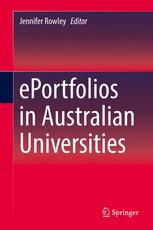

Most ebook files are in PDF format, so you can easily read them using various software such as Foxit Reader or directly on the Google Chrome browser.
Some ebook files are released by publishers in other formats such as .awz, .mobi, .epub, .fb2, etc. You may need to install specific software to read these formats on mobile/PC, such as Calibre.
Please read the tutorial at this link: https://ebookbell.com/faq
We offer FREE conversion to the popular formats you request; however, this may take some time. Therefore, right after payment, please email us, and we will try to provide the service as quickly as possible.
For some exceptional file formats or broken links (if any), please refrain from opening any disputes. Instead, email us first, and we will try to assist within a maximum of 6 hours.
EbookBell Team

5.0
20 reviewsThis book focuses on essential findings concerning emerging practices of student learning through the teaching and learning benefits of the electronic portfolio (ePortfolio) in a range of disciplines at Australian universities. It explores the latest research on ePortfolios, teaching quality, future research directions for tertiary learning and teaching, institutional agendas in higher education, and the role that the ePortfolios can play in supporting improvements in pedagogic practice and student outcomes.
Included in these agendas is research into the development of higher education through the technologising of pedagogy, learner identities in discrete disciplines, and the praxis of individual university teachers. The book covers accounts of academic learning success and challenges across current higher education subject areas. By presenting case study accounts of ePortfolio use, it reveals the importance of defining and documenting how we can meaningfully develop learner portfolios in research, teaching and learning at Australian universities. With an intentional research base, the book draws on work conducted inside and outside Australia and highlights how the ePortfolio can help tertiary staff prepare for the impact of a student-created portfolio on teaching, learning, and subsequent academic scholarship.